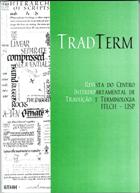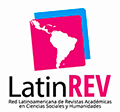Vladímir Nabókov: as artes da tradução
DOI:
https://doi.org/10.11606/issn.2317-9511.tradterm.2011.36757Keywords:
Nabokov, Vladímir 1899-1977, Russian Literature, Russian Culture, Russian, Translation, Self, Translation.Abstract
This paper will look at Vladimir Nabokov in the light of the interrelation between writing and (self-)translating, highlighting intersections of (re)reading, (re)translating, (re)creating, (re)editing, (self)translating and (re)writing. His being trilingual from an early age did not make Nabokov’s path to changes and ultimate exile – from his Language – less complex than his farewell to and increasing distance – from his Land, both being recollected and recreated through memory and otherness. Chameleonic writer, translator, teacher, scholar and theoretician, Nabokov takes hold of self-translation, intertwining the limits of Life, Art, Fiction, Metaphor, and transforming self-translation transpositions into an “eternal return”, infinite process of re-writing and re-creating the (de)construction of the new literary text in the new language, in a fusion of past and future. Challenging the boundaries of Literature, Language, and Translation through prose-poetry, traditional-modern, conservativeinnovative, originals-translations dichotomies, Nabokov orchestrates the art of composition and intertextuality – culminating in the unique Nabokovian poetics – punning with the omniscient, omnipresent, and omnipotent consciousness of writing and translating and the incompleteness of expression and speech before thought and feeling. The frantic experience of translating for the first time from Russian into Portuguese Nabokov’s “Spring in Fialta” (1956), in parallel to the Russian text’s confrontation with the author’s self-translation into English and his translation processes, raises issues about the dislocations in his literary landscape and language, and observe the relation between (re)reading, (re)writing, (self)translating and plural cultural and artistic identities, revisiting the Nabokov writer as a translator and the Nabokov translator as a writer.Downloads
Download data is not yet available.
Downloads
Published
2011-12-04
Issue
Section
Articles
License
Autores que publicam nesta revista concordam com os seguintes termos:
- Autores mantém os direitos autorais e concedem à revista o direito de primeira publicação, com o trabalho simultaneamente licenciado sob a Licença Creative Commons Attribution BY-NC-SA que permite o compartilhamento do trabalho com reconhecimento da autoria e publicação inicial nesta revista.
- Autores têm autorização para assumir contratos adicionais separadamente, para distribuição não-exclusiva da versão do trabalho publicada nesta revista (ex.: publicar em repositório institucional ou como capítulo de livro), com reconhecimento de autoria e publicação inicial nesta revista.
- Autores têm permissão e são estimulados a publicar e distribuir seu trabalho online (ex.: em repositórios institucionais ou na sua página pessoal) a qualquer ponto antes ou durante o processo editorial, já que isso pode gerar alterações produtivas, bem como aumentar o impacto e a citação do trabalho publicado (Veja O Efeito do Acesso Livre).
How to Cite
Urso, G. S. (2011). Vladímir Nabókov: as artes da tradução. TradTerm, 18, 103-122. https://doi.org/10.11606/issn.2317-9511.tradterm.2011.36757








